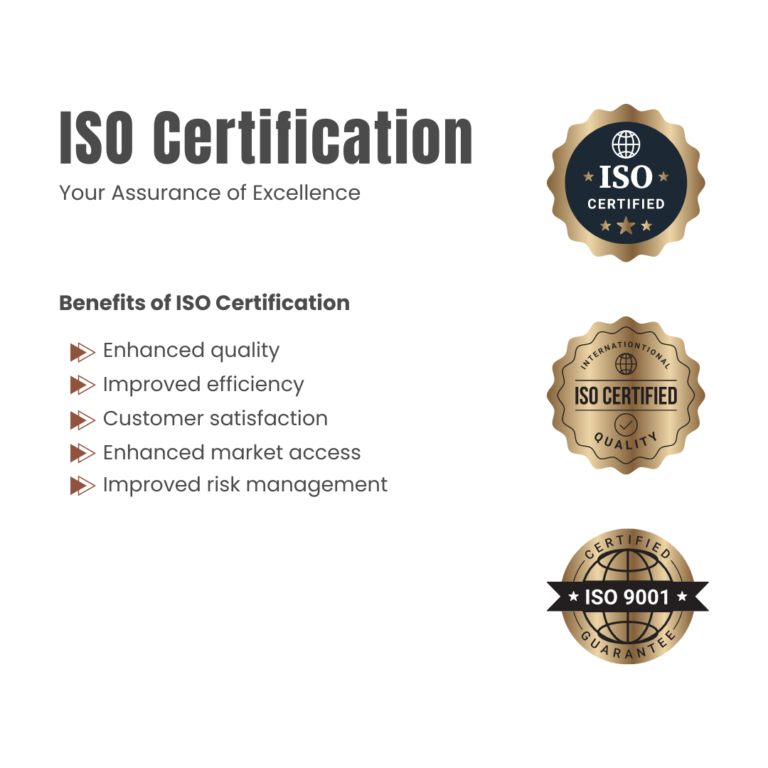ISO Certification
- Home
- ISO Certification
What is ISO Certification?
ISO certification is a testament to an organization’s commitment to excellence, quality, and consistency in its products or services. It signifies adherence to internationally recognized standards set forth by the International Organization for Standardization (ISO).
Acquiring an ISO certificate demonstrates an organization’s ability to meet customer requirements, comply with regulatory standards, and continually improve its processes. This certification not only enhances the reputation and credibility of the organization but also opens doors to new business opportunities by instilling trust and confidence among stakeholders. It serves as a powerful tool for companies to showcase their dedication to quality management systems, environmental sustainability, occupational health and safety, and other crucial aspects of operations.

Benefits of ISO Certification
Consistent Quality: ISO Certification guarantees a high level of product or service quality, minimizing errors and defects, thus ensuring customer satisfaction.
Enhanced Efficiency: By streamlining processes and optimizing resource utilization, ISO Certification boosts productivity while reducing waste, ultimately leading to cost savings.
Customer Trust: Certification demonstrates a commitment to quality, fostering trust with customers and enhancing overall satisfaction.
Cost Savings: Through improved efficiency and reduced errors, ISO Certification helps in saving costs associated with rework and waste.
Market Expansion: ISO Certification opens doors to new markets and business opportunities, as many industries require it for partnerships and contracts.
Risk Mitigation: By identifying and mitigating potential risks associated with operations, ISO Certification aids in better risk management, ensuring smoother business operations.
Types of ISO Certifications
ISO 9001: Quality Management Systems: The most widely recognized standard, focusing on customer satisfaction and continuous improvement.
ISO 14001: Environmental Management Systems: Helps organizations minimize their environmental impact and improve sustainability.
ISO 45001: Occupational Health and Safety Management Systems: Promotes a safe and healthy work environment for employees.
ISO 27001: Information Security Management Systems: Protects sensitive information and safeguards against cyber threats.
ISO 22000: Food Safety Management Systems: Ensures food safety throughout the supply chain.
In conclusion, ISO certification services serve as a cornerstone for organizations committed to excellence, quality, and continual improvement. With a robust framework in place, businesses can streamline operations, enhance customer satisfaction, and foster a culture of innovation. Achieving ISO certification signifies a dedication to meeting international standards, which not only enhances credibility but also opens doors to new markets and opportunities. Moreover, it underscores an organization’s commitment to sustainability and social responsibility. By partnering with ISO certification services, companies can navigate complex regulatory landscapes with confidence, ensuring long-term viability and success in today’s competitive global marketplace.
